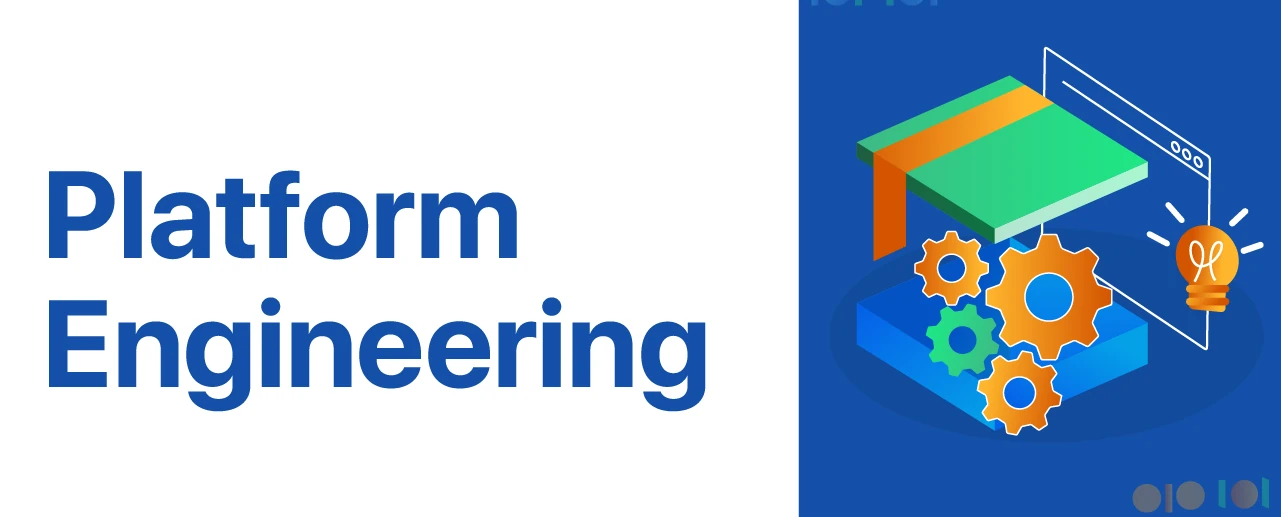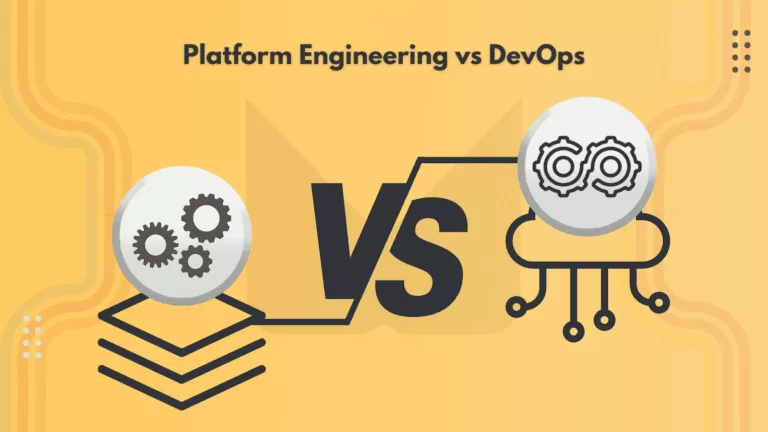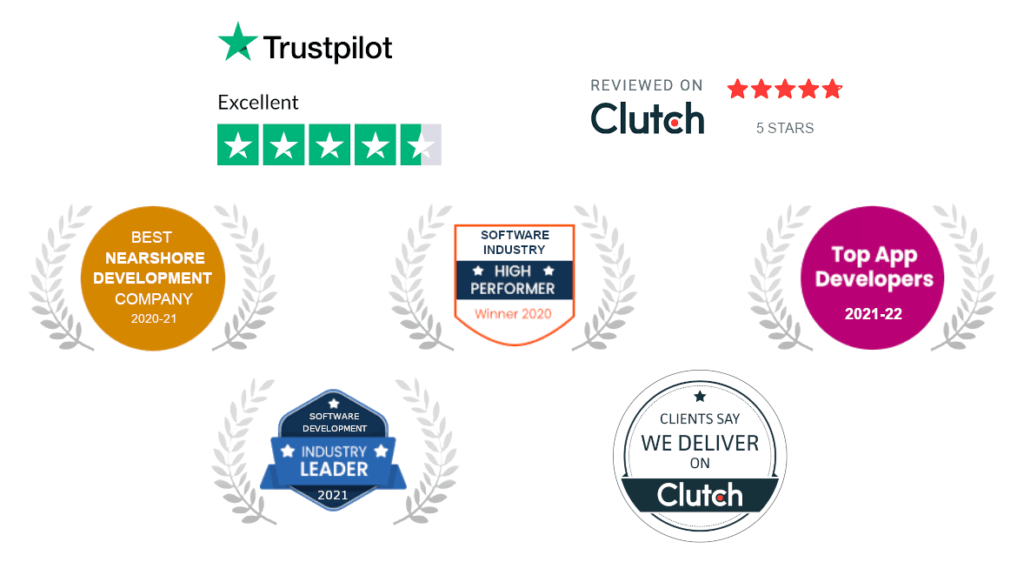We Help You Hire a Platform Engineer From South America
Your next project can often be stressful and time-consuming if you cannot find the right nearshore company to hire with. Smart, responsible, hardworking, and experienced Platform Engineers that are ideal candidates for your role.
Our AI matching algorithm helps your organization find the ideal development partner for your project. The method we use to match a Platform Engineer your team is a combination of data and personal interviews.
We are dedicated to helping you hire Platform Engineers who will contribute quality code right from the start. This is why we have refined our hiring processes over the past several years and have become a trusted partner for many startups that are growing rapidly. Add an expert to your team with OPSPROS and hire your future Platform Engineer.
Work to US Time
Our Platform Engineers work US hours and are happy to communicate with your existing team so they can gel with them.
Brazilian Rates
Our team is made up of talented and experienced Platform Engineers from Brazil who are eager to work with US companies.
No Employment Tax
Benefits, local employment taxes, and other employment-related expenses are handled by our company.
Tested Platform Engineers
It ensures your hiring a skilled professional who has passed our testing process when you hire a Platform engineer from us.
Testimonials



Why Do You Need A Platform Engineer?

Hiring a platform engineer brings several advantages, including efficient infrastructure management, streamlined CI/CD pipelines, and scalable and resilient architectures. They optimize resource allocation, automate processes, and leverage cloud technologies, resulting in improved operational efficiency and faster software releases. With their expertise in monitoring, security, and collaboration, they ensure optimal system performance, enhanced security measures, and effective teamwork within the organization.
Efficient Infrastructure Management:
A platform engineer specializes in managing infrastructure, ensuring its stability, scalability, and performance. They optimize resource allocation, implement automation, and leverage cloud technologies, enabling efficient infrastructure management.
Continuous Integration and Deployment (CI/CD):
A platform engineer plays a crucial role in establishing and maintaining CI/CD pipelines. They configure tools and workflows to automate build, testing, and deployment processes. This allows for frequent and reliable software releases, reducing manual errors and improving time-to-market.
Scalability and Resilience:
Platform engineers design and implement scalable architectures to handle increased user demand and accommodate growth. They utilize technologies like containerization and orchestration tools to ensure applications can scale horizontally and handle traffic spikes effectively.
Monitoring and Performance Optimization:
Platform engineers set up robust monitoring and alerting systems to track application performance and identify performance bottlenecks. They optimize resource utilization, analyze metrics, and proactively address issues to ensure optimal system performance and user experience.
Security and Compliance:
Platform engineers prioritize security and compliance, implementing best practices and ensuring adherence to regulatory standards. They establish secure access controls, monitor vulnerabilities, and apply necessary patches and updates to protect infrastructure and data.
In summary, a platform engineer brings expertise in efficient infrastructure management, CI/CD implementation, scalability, monitoring, security, and collaboration. Their role is vital in ensuring stable, scalable, and secure infrastructure, optimizing performance, and facilitating effective collaboration across teams, ultimately leading to successful software development and delivery.
Difference between a Platform Engineer and DevOps Engineer?

As many people get confused between a Platform Engineer and a DevOps Engineer we thought we would clarify the differences below.
DevOps Engineer:
A DevOps engineer focuses on the collaboration between development and operations teams, working to streamline the software delivery process and improve cross-functional communication. They are responsible for automating build, test, and deployment processes, implementing CI/CD pipelines, and promoting a culture of continuous integration and delivery. DevOps engineers prioritize tools and practices that enable faster time-to-market, enhanced collaboration, and efficient software delivery.
Platform Engineer:
A platform engineer, on the other hand, specializes in infrastructure management and optimization. They design and maintain scalable architectures, ensuring high availability and performance. Platform engineers leverage cloud technologies, containerization, and orchestration tools to enable efficient resource allocation, scalability, and resilience. They focus on monitoring and performance optimization, ensuring optimal system performance and proactively addressing any issues. Platform engineers also prioritize security and compliance, establishing secure access controls and ensuring adherence to regulatory standards.
The Difference
In Summary, while DevOps engineers concentrate on the software delivery process, emphasizing collaboration and automation, platform engineers specialize in infrastructure management, scalability, and performance optimization. While their roles intersect in certain areas, their main focuses differ, with DevOps engineers driving the software delivery pipeline and platform engineers specializing in infrastructure and platform management.
- Faster Time-to-Market
- Improved Collaboration
- Enhanced Quality and Stability
- Increased Scalability
- Reduced Downtime
- Continuous Improvement
- Cost Efficiency
- Increased Customer Satisfaction

OSCAR JUNIOR
Platform Engineer
9+ Years of Platform Engineering and 8+ Years of Linux Development. Has a wealth of web development expertise across many industries

FRANCISCO SOARES
Platform Engineer
8+ Years of Platform Engineering 8+ Security Has worked in companies with large number of visitors and dealt with scaling problems.

Edwardo Alves
Sr Platform Engineer
13+ Years of Platform 10+ Infrastructure Engineer. Experienced senior Platform Engineer who enjoys a challenge.
What does a Platform Engineer do?
A platform engineer manages and optimizes the infrastructure and platform on which software applications run. They design scalable architectures, ensure high availability, and implement monitoring and performance optimization strategies.
Infrastructure Management: Platform engineers are responsible for managing the infrastructure that supports software applications. They design, deploy, and maintain infrastructure components such as servers, networks, and storage systems.
Architecture Design and Optimization: Platform engineers design and optimize the architecture of the platform on which the applications run. They assess the performance requirements, scalability needs, and security considerations to create a robust and efficient architecture.
Scalability and Resilience: Platform engineers focus on ensuring that the platform can handle increasing user demand and maintain high availability. They implement strategies for horizontal scaling, load balancing, and fault tolerance.
Platform engineers play a critical role in infrastructure management, architecture design, scalability, monitoring, security, and collaboration. They ensure the platform’s stability, scalability, and performance, and collaborate with other teams to provide a reliable and efficient platform for running software applications.


We Are A Solid Platform Development Partner
OpsPros understands the importance of working with a reliable partner. As a result, we provide a premium and professional service to all our clients. Get in touch with us now to start your Platform development team!
How do you Hire a Platform Engineer?
Follow these three steps to hire a Platform Engineer:
Please click on the button below and click send on the form once you’ve written a description of your project and needs.
Interview Platform Engineers based on their resumes. Start shortlisting professionals you want to interview once proposals start coming in.
When you write your requirement description, you determine the scope of your work and the type of Platform Engineer you need.
In order to receive a fast and detailed response, please include the following information:
Detailed deliverables: From websites to APIs and big data analytics, list them all.
Identify whether the project is small or large in your job posting.
Let us know if you prefer experience with certain industries, software.
Billing: Please indicate your preference for hourly rates versus priced monthly contracts.
How much does it cost to Hire a Platform Engineer?
Several factors affect cost, including expertise, experience, market conditions, and location.
Additionally, an experienced Platform Engineer will provide higher-quality results, work faster, and have more specialized knowledge.
Once they gain experience, beginners might be able to price their services higher.
Below are the rates for hiring our South American Platform Engineers
Junior
Prices From- Works to U.S time zones
- No Recruitment Fees
- Vetted Skills & Experience
- Fulltime Working for you
- No Unreliable Freelancers
Intermediate
Prices From- Works to U.S time zones
- No Recruitment Fees
- Vetted Skills & Experience
- Fulltime Working for you
- No Unreliable Freelancers
Senior
Prices From- Works to U.S time zones
- No Recruitment Fees
- Vetted Skills & Experience
- Fulltime Working for you
- No Unreliable Freelancers
We have Platform Engineers in South America available for hire!
Depending on the exact skill requirements and experience requirements, the price of Engineers may vary slightly.
Depending on your project, you’ll need to determine which is right for you.
Do Platform Engineers write code?
Yes, platform engineers often write code as part of their responsibilities. They use programming languages like Python to automate infrastructure management, configure deployment pipelines, and implement monitoring and alerting systems. Here are a few examples of how platform engineers use Python:
Infrastructure Automation: Platform engineers write code in Python to define infrastructure resources using tools like Terraform or CloudFormation. They can create code templates that describe servers, networks, and other infrastructure components, enabling automated provisioning and management.
:
resource "aws_instance" "example" {
ami = "ami-0c94855ba95c71c99"
instance_type = "t2.micro"
key_name = "my-key-pair"
tags = {
Name = "example-instance"
}
}Deployment Automation: Platform engineers use Python scripts to automate the deployment process of applications. They write code to configure application settings, install dependencies, and orchestrate deployment workflows.
from fabric import Connection
def deploy_app():
with Connection('example.com') as conn:
conn.run('git pull')
conn.run('docker-compose up -d')Interview Questions to ask a Platform Engineer
Can you describe your experience in designing and scaling architectures for high availability and performance? Provide an example of a project where you implemented such an architecture.
This question assesses the candidate’s understanding of designing scalable architectures and their practical experience in implementing them. The ideal candidate should be able to discuss their knowledge of load balancing, fault tolerance, and horizontal scaling, and provide a real-life example showcasing their ability to design and optimize architectures for high availability and performance.
How do you approach monitoring and performance optimization in a platform environment? Share your experience with implementing monitoring and alerting systems
This question evaluates the candidate’s expertise in monitoring and optimizing platform performance. They should discuss their experience with monitoring tools, metrics they track, and how they analyze data to identify performance bottlenecks. An ideal response would include examples of implementing alerting systems, troubleshooting performance issues, and optimizing resource utilization.

What steps do you take to ensure security and compliance in platform management? How do you stay updated with the latest security practices and standards?
This question assesses the candidate’s knowledge and commitment to security and compliance. They should explain their approach to implementing security measures, managing access controls, and addressing vulnerabilities. The ideal candidate would also demonstrate their awareness of industry standards, best practices, and their proactive efforts to stay informed about the latest security trends and updates.

Do you enjoy Working Alone or within a Team?
There is no right or wrong answer to this question since Platform engineers can have any combination of skills. Having an engineer who is hardworking and independent may be important to you. You might prefer someone who works well with others and isn’t stubborn.
Describe a situation where you had to collaborate with cross-functional teams, such as development or operations. How did you ensure effective communication and successful outcomes?
This question evaluates the candidate’s ability to collaborate and communicate with different teams. They should provide an example where they worked with teams outside of their own, discussing the challenges they faced and how they facilitated effective communication and collaboration. The ideal response would showcase their teamwork, adaptability, and their role in achieving successful outcomes through effective cross-functional collaboration.
A Brief History of Platform Engineering
Emergence of Cloud Computing:
Platform engineering evolved with the rise of cloud computing in the early 2000s. Cloud providers like Amazon Web Services (AWS), Microsoft Azure, and Google Cloud Platform introduced scalable infrastructure services, shifting the focus from on-premises hardware to cloud-based platforms.
Pioneering Platform Technologies:
In the mid-2000s, platform technologies like Heroku, a cloud-based platform for building and deploying applications, emerged. They provided developers with ready-to-use platforms that abstracted infrastructure complexities and enabled easy application deployment.
Platform as a Service (PaaS):
The concept of Platform as a Service (PaaS) gained prominence, offering developers a complete platform for developing, running, and managing applications. PaaS providers, including Salesforce’s Force.com and Google App Engine, provided application frameworks, databases, and other tools to simplify the development process.
Microservices and Containerization:
The rise of microservices architecture and containerization technologies, like Docker, Kubernetes, and Docker Swarm, reshaped platform engineering. These technologies enabled developers to package applications into lightweight, portable containers and manage them at scale.
Platform Orchestration and Automation:
With the increasing complexity of distributed systems, platform engineers adopted orchestration and automation tools. Platforms like Kubernetes and Docker Swarm provided robust orchestration capabilities, streamlining deployment, scaling, and management of containerized applications.
Continuous Evolution:
Platform engineering continues to evolve as new technologies, such as serverless computing and multi-cloud environments, gain prominence. Platform engineers adapt to changing demands, optimizing infrastructure, managing complexities, and providing reliable platforms for application development and deployment.
Why you should choose us to hire a Platform Engineer?
As a leading Nearshore Technology Solutions provider, we provide high-quality Platform Engineers at reasonable prices. High-performance, scalable solutions are our goal for our clients. Throughout the project development phase and beyond, we strive to create long-term value.
Since 2014, we’ve matched skillful Platform Engineers with great teams for over a hundred startups and tech companies worldwide.
You will find our Platform Engineers to be devoted members of your team, fully integrating into your team’s operation.
Platform Engineers that we hire undergo a thorough vetting process to ensure they have the necessary communication skills, remote work readiness, and technical skills (both for Platform engineering, development, and cloud ).
Reduce Costs
In order to reduce costs, companies usually outsource. The cost of hiring software engineers outside the United States is lower. Additionally, you will be able to reduce overall employment costs significantly. There won’t be any US or European employment taxes, benefits, redundancy liabilities, or office space fees.
Ramp Up Faster
Taking advantage of growth and downsizing quickly can be a great competitive advantage for any industry. When you hire Brazilian Engineers through us, you will be able to scale up or down as needed, and do so relatively easily.
Trusted Partner
By outsourcing Platform Engineers, you’re entrusting your project to a company with extensive experience helping businesses succeed. Thus, you can rest assured that your application will be delivered on schedule and within budget.
Why hire a Platform Engineer?
Why hire a Platform engineer for your software project? There are several ways in which development projects benefit from having Platform engineers. Here are a few examples of software and procedures that demonstrate these benefits:
Continuous Integration and Deployment (CI/CD) Pipelines:
Platform engineers establish and maintain CI/CD pipelines, which automate the integration, testing, and deployment of code changes. This ensures that developers can frequently and reliably release new features and updates. For instance, with a well-configured CI/CD pipeline using tools like Jenkins or GitLab CI, developers can merge their code changes into the main branch and have it automatically built, tested, and deployed to production or staging environments.
Infrastructure as Code (IaC) and Configuration Management:
Platform engineers leverage IaC practices and tools like Terraform, Ansible, or Puppet to define and manage infrastructure resources. This allows developers to provision and configure development, staging, and production environments easily and consistently. Developers can quickly spin up replicas of the production environment for testing or debugging purposes, ensuring a smooth development experience and reducing environment-related issues.
Platform Engineer can improve your software development
Having Platform engineers in development projects brings benefits such as streamlined CI/CD pipelines, efficient infrastructure management, automated testing, enhanced collaboration, and proactive monitoring. These practices and tools empower developers to deliver high-quality software more efficiently, collaborate effectively, and maintain the stability and reliability of their applications.

- Continuous Integration and Deployment (CI/CD)
- Improved Automation
- Infrastructure as Code (IaC)
- Monitoring and Alerting
- Better Collaboration and Communication
- Improved Security and Compliance
How do we test a Platform Engineer to check his skills?

To test a platform engineer, we evaluate their proficiency in infrastructure management, architecture design, scalability, monitoring, security, and collaboration. Assess their ability to design and optimize architectures for high availability and performance, their experience with implementing monitoring and alerting systems, and their knowledge of security practices and compliance.
Practical exercises, scenario-based questions, and discussions about past projects can provide insights into their problem-solving skills, technical expertise, and ability to work effectively with cross-functional teams. Additionally, assessing their familiarity with relevant tools and technologies, their understanding of cloud platforms, and their commitment to continuous learning can help gauge their suitability as a platform engineer.
How do you Integrate Platform Engineers into your existing development team?
Integrating Platform Engineers into an existing development team requires careful planning and effective collaboration. Here’s how to approach the integration:
Assess Current Team Structure and Processes:
Evaluate the current development team structure, processes, and workflows. Identify areas where Platform engineering practices can bring the most value and align with the team’s goals and project requirements.
Define Roles and Responsibilities:
Clearly define the roles and responsibilities of Platform Engineers within the development team. Determine how they will collaborate with developers, testers, and other stakeholders. Ensure everyone understands their respective roles and the value each role brings to the team.

Promote Cross-Functional Collaboration:
Encourage cross-functional collaboration between Platform Engineers and other team members. Facilitate regular meetings, stand-ups, and knowledge-sharing sessions. Foster an environment where team members can learn from each other, exchange ideas, and work together to solve challenges.
Establish Continuous Integration and Deployment (CI/CD) Pipelines:
Implement CI/CD pipelines and automation practices that seamlessly integrate with the existing development workflow. Collaborate with Platform Engineers to configure and optimize these pipelines, ensuring a smooth and efficient software delivery process.
Provide Training and Support:
Offer training and support to the development team to familiarize them with Platform engineering concepts, tools, and practices. Conduct workshops, provide documentation, and encourage skill-sharing sessions. This ensures that everyone understands the importance of the Platform and can actively contribute to its implementation.
Encourage a Culture of Continuous Improvement:
Promote a culture of continuous improvement and learning within the team. Encourage team members, including Platform Engineers, to experiment, innovate, and propose process optimizations. Embrace feedback loops, retrospective discussions, and data-driven decision-making to drive continuous improvement.
Ready for Sucess
By following these steps, integration of Platform Engineers into an existing development team can be done effectively, ensuring collaboration, streamlined processes, and successful adoption of Platform Engineering practices throughout the software development lifecycle.

How long on average does a Platform Engineer stay at a company?
Platform Engineers in the US tend to stay between 1.4 and 3.3 years in their jobs, with larger companies keeping workers longer. On average, Brazilians spend between 1.9 and 4.1 years in the job, with Sao Paulo residents spending the shortest amount of time there. Previously, people tended to spend their entire careers with the same company.
Platform Engineers with experience may depart from one job to another for new opportunities and more money, as such longevity is no longer the norm. The most in-demand Platform pros can migrate between jobs (or even freelance) fairly easily in this market due to a low unemployment rate and a great need for professionals with deployment, cloud, and other important skills. We offer perks to attract and retain top talent, and we value communication with employees.

Frequently Asked Questions (FAQs)
Our services are trusted by hundreds of startups and tech companies worldwide, and we have matched hundreds of skilled Engineers to great development teams in the US, UK and Canada. Every Platform Engineer in our network goes through a vetting process to verify their communication abilities, remote work readiness, and technical skills, both for depth in DevOps and breadth across the greater development and deployment domain.
The job description of a Platform Engineer should include the following:
Deployment, implementing, and managing software
New program testing and evaluation
Enhancing existing programs by identifying areas for improvement
Scripting and Automation
Analyzing operational feasibility
Establishing procedures for quality assurance
Implementing software tools, processes, and metrics
Upgrades and maintenance of existing systems
Assisting other developers, UX designers, and business analysts with their tasks
It’s not enough to just ship features; your software needs to help your business succeed. In order to better understand what you’re building, for whom, and why, we’ll begin our collaboration with a discovery process.
Our headquarters are in Sao Paulo, Brazil. We have clients from all over the world. We have successfully collaborated with companies in North America, Asia, the Middle East, and Europe. A good understanding of each client and excellent English communication skills help the process run smoothly.
We can work with you to scale the team down as needed and make sure you have the correct skills required for each project phase.
All Types! You can hire a Platform Engineer on a full-time, part-time, or contract-to-hire basis at OPSPROS. You can find a Platform Engineer in a time zone that suits your needs thanks to our global network of skilled platform engineers. Engineers who work remotely for us are all mid- and senior-level professionals, ready to work away.

